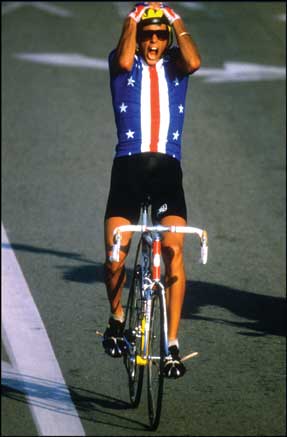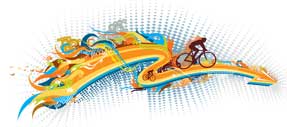Magazine
Pedaling Glory
Alexi Singh Grewal, the only Indian American ever to win an Olympic gold, seeks to reform bicycling.
|
While waiting for his plane to depart from Newark Airport in New Jersey, Alexi Singh Grewal, the 1984 Olympic gold medalist in cycling, was about to gain one part of his identity and lose another. The Indian American, who was raised in Colorado, was traveling to India for the first time ever to see relatives he’d never met and to research the state of cycling in the country. As the only Indian American ever to win an Olympic gold medal, and the first American to win a gold medal in cycling, Grewal wanted to nurture what he calls an “inherent genetic ability” in Indians for cycling. While he stood in line for coffee before his flight boarded, however, his briefcase containing the very gold medal that defined his career was stolen.
Alex Singh Grewal’s journey to become a world-class cyclist has been colorful and controversial. He almost didn’t compete in the 1984 Olympics because the U.S. Cycling Federation dropped him from the team after he tested positive for the stimulant phenylethylamine. After an appeal he was allowed to compete. Since then he has been outspoken about the dangers of doping in cycling, which he says is rampant in the community. In the April Velonews, a competitive cycling magazine, he published a candid essay that revealed his own experiences with doping and named doctors who prepared injections for athletes. Grewal hopes his story will prevent others from doping and inspire new cyclists. “There is a generation of people coming up. It’s time to share my experience,” said Grewal. Grewal, who is half-German and half-Indian, grew up in Colorado with two sisters and two brothers, Rishi and Ranjeet, who are also top cyclists. He started training when he was 12. His father, Jasjit Singh Grewal, a Sikh who moved to the U.S. in 1956, owned a bike shop, but was not a cyclist himself until he was 35 years old. In fact, the Grewal family became successful at the sport at about the same time.
Alexi Singh Grewal was drawn to cycling because “it is nomadic, difficult, and adventurous.” He dropped out of high school to train and first experimented with doping when he was still a junior player. “I was a little apprehensive about how it would hurt me, but not apprehensive enough not to take it,” said Grewal of his first experience with doping. He said cyclists doped more than other athletes because of the “biochemical interface” of the sport – it gets exponentially more difficult as you increase the speed, which he called “physically and psychologically draining.” Doctors were in on the doping too, supplying and injecting steroids, but in the past few years have started to “detect (steroids) rather than inject them.” After he turned professional in the mid-1980s Grewal quit taking stimulants, but says he wouldn’t change his past: “Do I regret it? I can’t. Do I want someone else to go down the road? No. I want to tell people what I experienced so they don’t have to experience it themselves.”
Now Grewal, who was inducted into the United States Bicycling Hall of Fame in 2004, is looking to the future by examining his roots. While visiting the Punjab region of India, where his father is from, he visited the Cycling Federation of India. He saw himself in the Indians he met. “When I was in Punjab I felt like I was among an army of champions,” he said. “My genetic makeup and my families makeup was naturally suited to my sport.” Grewal has a complex plan to set up programs in India, to facilitate sponsorship and bring in coaches to train the next championship cyclists that he says are in India now. “India is a sleeping giant,” he says. “A Tour de France winner is in India right now.”
|





You must be logged in to post a comment Login